On 10 March 2021, ERA and the Southeastern Europe branch of Solidarity Center co-hosted a regional webinar with the aim to address and understand the socio-economic issues of LGBTI+ workers in the Western Balkans and Turkey region.
The webinar’s panel consisted of Steven McCloud, Executive Director of Solidarity Center in Southeastern Europe, Amarildo Fecanji, Executive Co-Director of ERA, Emilija Grujic, Coordinator of the Regional Trade Union Council “Solidarnost”, Kocho Andonovski, Director of Programs at LGBTI Support Center in North Macedonia, Jelena Vasiljevic, Capacity Development Manager of ERA (speaking on behalf of Labris, Serbia) and Jerame Davis, Executive Director of Pride at Work in the United States. The webinar was moderated by ERA’s Advocacy Manager, Biljana Ginova.
Firstly, the event served to increase awareness and broaden the understanding of union representatives and other participants on the specific challenges faced by LGBTI+ workers in the Western Balkans. All countries of the Western Balkans have in place anti-discrimination legislation and policies that protect LGBTI+ people in the workplace from discrimination, harassment, unequal treatment and more. While this is one of the most positive developments with regards to LGBTI+ rights in this region, huge challenges exist in the implementation of these laws and policies as well as in the lack of additional laws and regulations that make the enjoyment of many fundamental socio-economic rights practically impossible for LGBTI+ persons.
In fact, the reality on the ground, as well as studies, reveal a distressing situation. For example, recent regional research conducted by ERA reveals that:
- 2/3 of LGBTI+ people always hide their LGBTI+ status at work, primarily due to:
- Fear of losing their job
- Fear of alienation and discrimination from other colleagues
- Fear of violence
- Fear of administrative sanctions
- Fear of exploitation (more work in exchange of tolerating you for being LGBTI+)
- 41% have witnessed negative attitudes and conduct towards LGBTI+ colleagues
- 14% have experienced personally such comments
- 16% have experienced unequal treatment with respect to employment conditions
- Most severely discriminated against are trans people, men perceived as feminine and lesbians.
Moreover, current legal gaps make it impossible for many LGBTI workers to enjoy the same benefits and rights as their cis and heterosexual counterparts. For instance, due to lack of legal recognition, same-sex couples in most of the Western Balkans cannot enjoy the same parental rights or other rights that derive from being in a legally recognized union. Trans people who intend to go through transition cannot benefit either from their insurance or working contract. These are only but a few of the many challenges faced by LGBTI workers in the region.
To make things worse, the Covid-19 pandemic and the related measures have further deteriorated LGBTI+ people’s position with regards to work and income. In Albania a study conducted by Alliance LGBT found that 47% of LGBTI respondents were unemployed, with half of them losing their job during the state of emergency, compared to 30% from the general population. In Montenegro a UN report found that 50% of LGBTI+ respondents had completely lost their income or their income was reduced by more than 50%. In Serbia, a study by Egal found that more than 20% of the LGBTI community surveyed needed urgent economic support and that approximately 2/3 or respondents had suffered economically due to the pandemic.
Next, the focus was placed on the role that trade unions can play in addressing these challenges. A first key message was that unions have a vital role to play in decreasing unemployment among LGBTI+ people, protect them from discriminatory actions and policies and push towards LGBTI-friendly workplace environment. Practical recommendations were made with regards to the role of unions in engaging with the LGBTI movement and workers, bargaining and negotiating for LGBTI workers and regional as well as international work and cooperation.
Unfortunately, at present there is still a big gap in communication, dialogue and cooperation between unions and LGBTI workers as well as organizations representing them. This can be seen as a challenge but also as an unexplored opportunity from both sides. Participants discussed at length on this issue and emphasized that for cooperation to start firstly trade unions and LGBTI organizations need to address the language and other existing barriers. Jelena Vasiljević from ERA pointed out to the language barriers between the LGBTI+ movement and trade unions, but also to the lack of understanding of LGBTI+ concerns, as Kocho Andonovski from LGBTI Support center put it “Trade unions do not know LGBTI+ and the LGBTI+ community does not know trade unions.” Secondly, efforts must be made to build trust between unions and the LGBTI community. Both parties need to address exiting prejudices or miss-understandings and figure out how to support each other for their mutual benefit. Emilija Grujic from the Regional Unions Platform Solidarnost stated their dedication in bringing social dimension into the EU integration processes. She suggested that “the LGBTI rights could be brought up to the Union’s agenda through the Youth and Women’s section.” Lejlja Causevic from the Confederation of Independent Unions in Bosnia and Herzegovina confirmed this later in her comments, by adding that the LGBTI concerns must also be brought to the top of the agendas and decision makers within unions.
The importance of mutual support and learning from each other was brought by every speaker at the event. LGBTI+ organizations for example can help unions with their organizational capacities particularly in the areas of advocacy and/or fundraising and promote union membership among the LGBTI+ community, while unions can help LGBTI+ people to fight for their socio-economic rights, encourage LGBTI+ membership and engagement, help out in setting-up LGBTI+ specific sections within unions, or even help in founding of LGBTI+ worker’s unions. Moreover, support can be given on encouraging LGBTI+ activists to set up specific organizations and programs that focus exclusively on LGBTI+ worker’s rights.
One concern raised was that many in the LGBTI+ community do not have a positive view of labor union federations because they have felt ignored by them in the past. They perceive unions as being too preoccupied with internal issues and only focused on a narrower scope of worker’s rights issue for their existing members. While there is some truth to this, today many national trade unions, including some in the Western Balkans are engaged in an array of “non-traditional” worker issues, such as protecting the environment, ending gender based harassment, and promoting migrant and undocumented worker rights. This was evident at the meeting as well, as several national confederations had staff in attendance.
Participants discussed approaches and entry points for trade unions, putting emphasis on union’s youth and women’s sections, as platforms which are generally more open to conversations about minorities and vulnerable communities. Unions recognized that not enough work has been done to discuss this specific issue, and that unfortunately it has never been considered a priority. Equal importance was given to engaging with the leaderships of trade unions as they play a very important role in guiding policy and change. Ultimately, it was understood that different engagement approaches might apply across the region, depending on context and opportunities.
On her reflections after the meeting Emilija Grujic commented that “this was the first introductory session of a cooperation that will gain strength over time. Of course, face to face is a much stronger method of getting to know and understanding each other, but surreal circumstances prevent us from doing so. It is certainly good that we have any way of virtual communication to open a dialogue with LGBTI+ workers. We do have colleagues among usually young females who are willing to build up support and push the dialogue locally, nationally and regionally once the crisis subsides. At the moment we are all locked in a time of crisis and security measures or infected, because the virus has started to rage again.”
ERA – LGBTI Equal Rights Association, with the support of Olof Palme International Center, is implementing a regional initiative aiming to improve LGBTI workers’ rights through closer engagement and dialogue with unions as well as advocacy, capacity development and campaign activities on this topic. In 2021 we aim to provide a regional training to union representatives on LGBTI+ workers as well as facilitate dialogue meetings at country and city levels between unions and the LGBTI+ community.
One of the key words of this important first meeting was “Solidarity”:
– Solidarity with LGBTI+ workers;
– Solidarity with unions;
– Solidarity with everyone whose socio-economic rights are not protected;
Key recommendations include:
- To establish cooperation or a dialogue between ERA and Unions through MoUs or similar;
- To start the cooperation between ERA and the Unions through the existing sections such as those on Youth and Women before establishing specific one focused on LGBTIQ;
- To include SOGIESC as protected grounds of discrimination in the collective agreements, where it is not already included;
- To work on building trust of LGBTIQ employees that they will be protected by the Unions;
- Visibility is important. LGBTIQ issues and people to be visible in the Union documents;
- Specialization of LGBTIQ organisations in region to address workers’ rights of community members in a systemic and structural manner.
To watch the full event click here.
To learn more about the socio-economic reality of LGBTI+ people, click here.
To learn more about the impact of Covid-19 pandemic on the LGBTI+ community in the Western Balkans click here.
Click here to learn how ILO Convention 190 Addresses Gender-Based Violence and Harassment in the World of Work During the COVID-19 Pandemic and Beyond.
If you are a representative of a trade union operating in the Western Balkans (Albania, Bosnia and Herzegovina, Croatia, Kosovo, Montenegro, North Macedonia, Serbia and Slovenia) we kindly invite you to fill a short survey by clicking on this link. Your inputs will help us understand the needs and expectations of unions with regards to LGBTI workers in our region.
If you wish to talk and engage with ERA on this specific issue, please send an email at office@lgbti-era.organd amarildo@lgbti-era.org
Source: lgbti-era.org



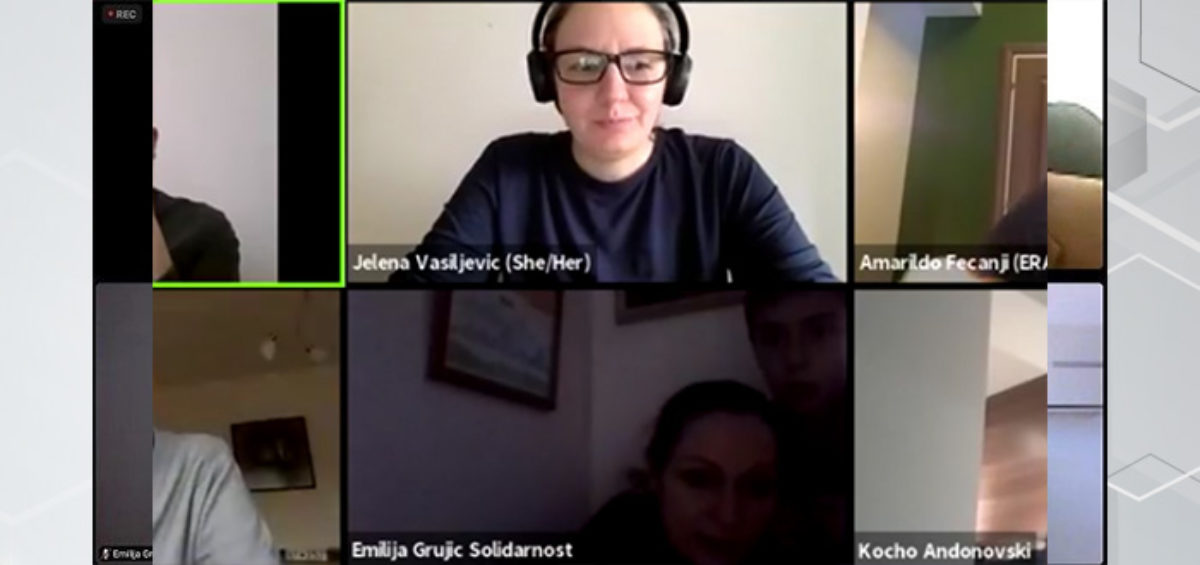

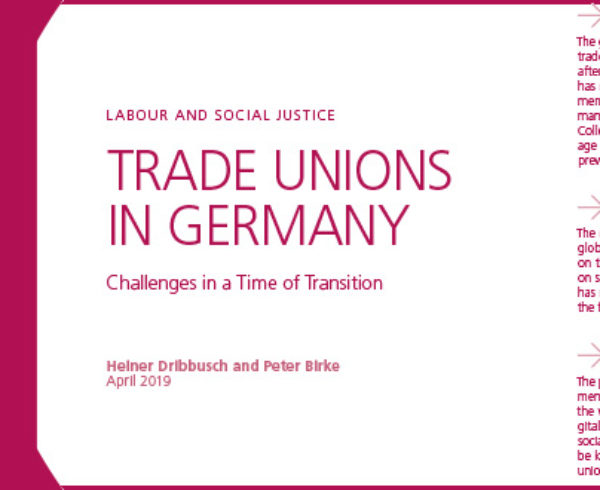

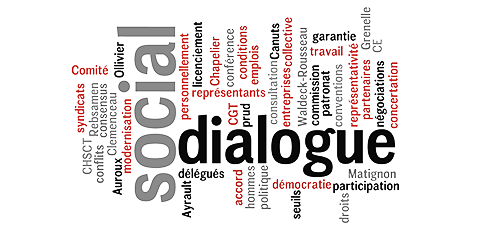
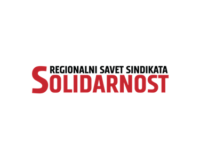
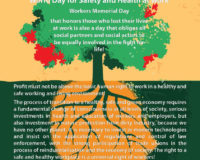
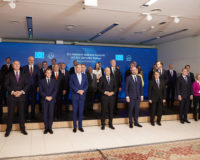
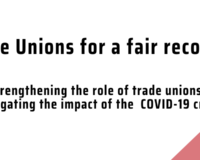
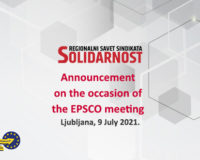
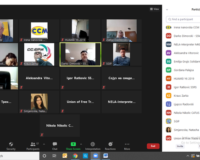


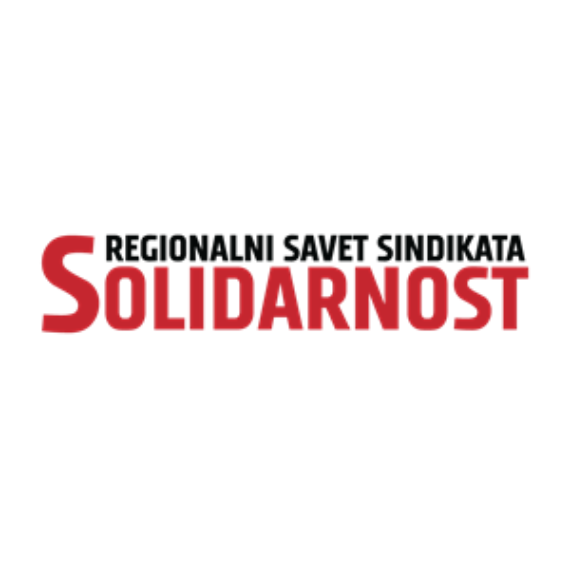
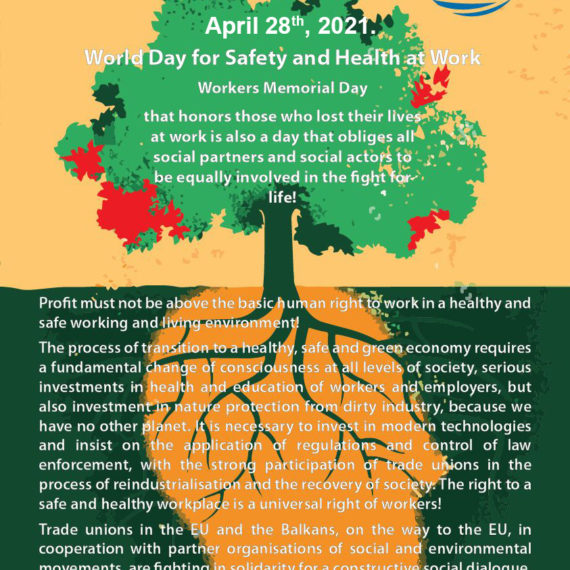
Leave a Comment